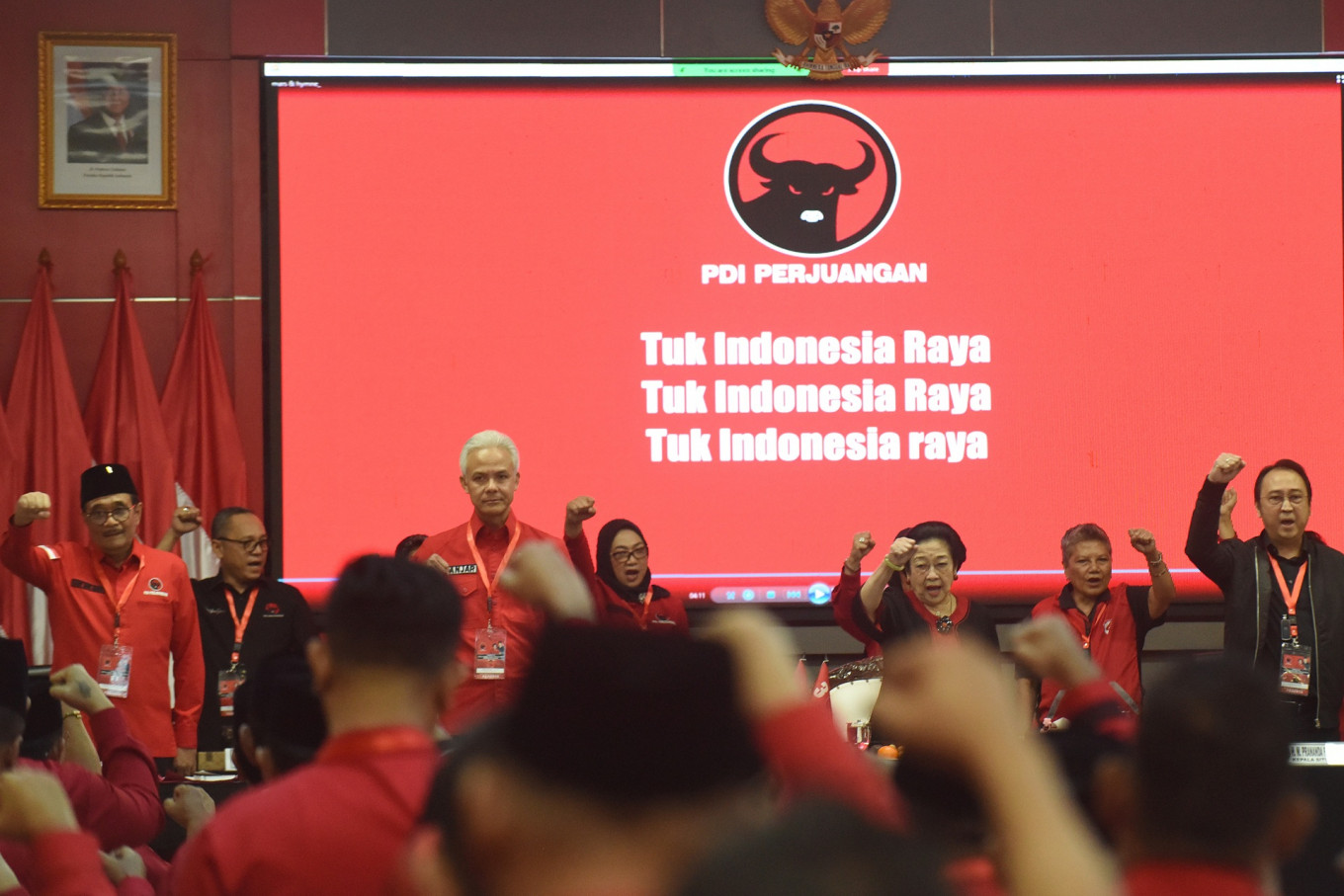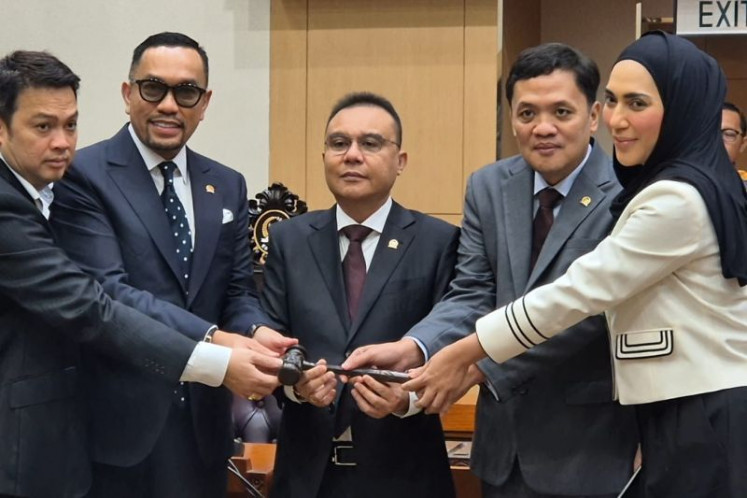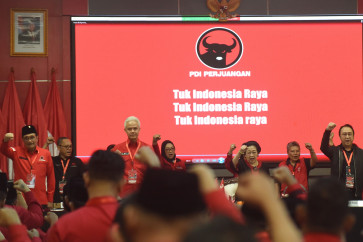Popular Reads
Top Results
Can't find what you're looking for?
View all search resultsPopular Reads
Top Results
Can't find what you're looking for?
View all search resultsPDI-P pledges to defend democracy
Change text size
Gift Premium Articles
to Anyone
 Indonesian Democratic Party of Struggle (PDI-P) chairwoman Megawati Soekarnoputri stands with party executives Prananda Prabowo (right), Djarot Saiful Hidayat (left) and Ganjar Pranowo (second left) on May 16, 2025, during a briefing for party-affiliated regional leaders in Jakarta. (Antara/Indrianto Eko Suwarso)
Indonesian Democratic Party of Struggle (PDI-P) chairwoman Megawati Soekarnoputri stands with party executives Prananda Prabowo (right), Djarot Saiful Hidayat (left) and Ganjar Pranowo (second left) on May 16, 2025, during a briefing for party-affiliated regional leaders in Jakarta. (Antara/Indrianto Eko Suwarso)
T
he Indonesian Democratic Party of Struggle (PDI-P), the only de facto opposition party in the legislature, reiterated its historical ties to the country’s Reform movement, pledging to remain committed to upholding its agenda.
On Wednesday, Indonesia marked the 27th anniversary of the fall of Soeharto’s authoritarian regime and the start of the Reform Era—a turning point that dismantled the military’s dual role, expanded press freedom and ushered in democratic governance.
Speaking to The Jakarta Post on Tuesday, PDI-P politician Seno Aryo Bagaskara emphasized the party’s deep connection to the country’s reform movement, which is rooted in its resistance to authoritarianism, and its continued commitment to defend democracy.
During Soeharto’s New Order regime, he explained, there was a systematic attempt to erase Sukarno’s legacy, or de-Sukarnoization, which affected the PDI-P at the time.
The party is the continuation of PDI - a fusion of several parties including first president Sukarno’s Indonesian National Party, one of three political parties that Soeharto allowed to exist during his 32-years in power.
Soeharto cracked down on the PDI in July 1966, or three years after Sukarno’s daughter, Megawati Soekarnoputri, won the party leadership. Megawati became an icon of democracy until Soeharto fell from grace in May 1998.
Read also: Activists refuse to forget as reform era fades


















